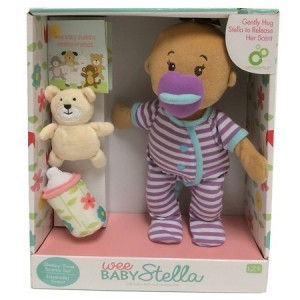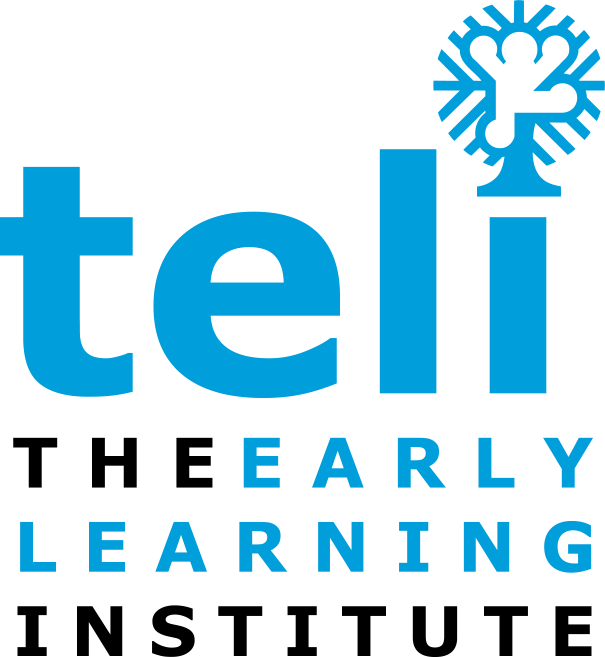By: Kelly Beddall, Speech and Language Pathologist
It’s that time of year to pick the perfect gift for your favorite little one! There are many toys available that are fun, exciting AND can build upon your child’s speech and language skills. The elves have been hard at work finding toys that can build on these important developmental skills. This is a quick guide (please note that many of these toys can be found in a variety of stores or online) and best of all they are under 30.00!! The following are not recommendations or an endorsement of particular brands, but rather provided as suggestions for the skill they reinforce.
Cause and Effect
Cause and effect is a key foundation skill for the development of speech and language. More specifically, it teaches children how to communicate with intent. Children begin to understand cause and effect very early (For example, when I throw my cup on the floor, mommy will pick it up!). It involves understanding that there is an action and a consequence. Children can be introduced to toys that help develop their ability to understand cause and effect.
Here are some ideas from the elves at TELI:
Infantino Topsy Turvy Press & Pop Spin Top: The colorful frogs will jump and pop once your child pushes the top down. This toy is great for little ones that are just beginning to understand the concept of cause and effect.
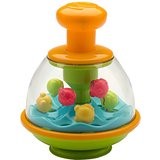
Fisher-Price Brilliant Basics Boppin Activity Bugs: These pop-up toys have been around for a while! They continue to be an excellent teaching toy for cause and effect. Your little one will learn that when he touches one of the buttons, toggles, or switches, something fun will occur.
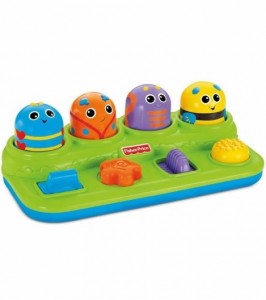
PlanToys Hammer Balls: Your child can hammer the ball AND watch it roll right back to him with this eco-friendly wooden toy. Parents can provide comments such as “you did it!” or ask “where did the ball go?”
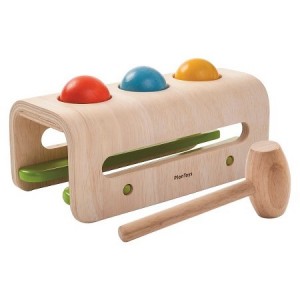
Skip Hop Explore and More Pull and Go Car: Little hands can pull back this fun car and watch it go!
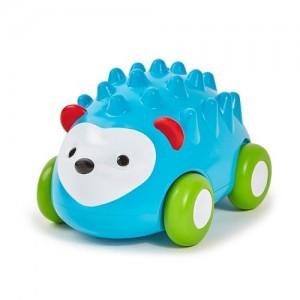
Turn-Taking
Turn Taking is a critical requirement of learning how to communicate. The ability to communicate requires two people to go back and forth and exchange information. You can help your infant or toddler develop turn-taking skills with a variety of activities which may include smiling in response to your baby’s vocalizations or rolling a ball back and forth with your toddler. For little ones that are just learning how to take turns, try to keep each turn quick and enjoyable! Here are some toys that can help to promote turn-taking:
Little Tikes Tap-a-Tune Drum: This cute drum comes with two sticks – one for your child and one for you! Parent can tap on the drum and then encourage child to take his turn to tap on it. Use phrases such as “your turn” and “mommy’s turn” or “my turn.”
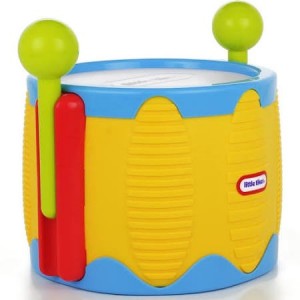
Melissa and Doug Monster Plush Bowling Game: Your child can have fun knocking down the pins in this great turn-taking game. Invite siblings to join in the fun. Take turns setting up the pins and then rolling the monster ball to knock them down.
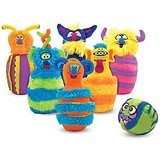
Roll and Play by Think Fun: This is a fun game that can introduce your child to the concept of turn-taking (an added bonus it provides many other speech and language learning opportunities!) Roll the plush cube , pick a card and perform the activity (e.g. bark like a dog or clap your hands).
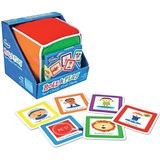
Imitation Skills
Imitating skills are another requirement for the development of communication. Children learn to imitate play routines, actions and also sounds and words in the language building process. Use toys that require exciting sounds and exclamations that your little one will want to try to repeat back!
Fisher-Price Little People Race and Chase Rescue Playset: There are so many sounds that can be explored with this toy. Adults can model fire truck sounds (woo woo!) and vehicle sounds (beep beep). Say “weeeeee” as the car zooms down the track or “uh-oh” as the car crashes. Listen for your child to try to repeat these sounds during play and provide lots of praise and reinforcement. Add simple words and phrases such as “ready-set-go”, “up up up” and “stop car.”
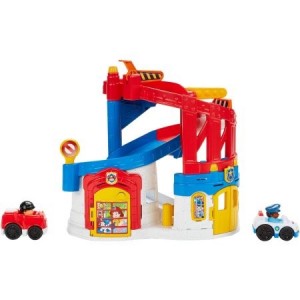
Melissa and Doug Farm Friends Hand Puppets: Sometimes children feel there is pressure to communicate with adults. Puppets can provide less stress for your child when he is trying to make new sounds. Moo, Baa, Oink Oink!! Pick up a farm friend and make simple animal sounds. Practicing animal sounds can be beneficial in your toddler’s speech and language development.
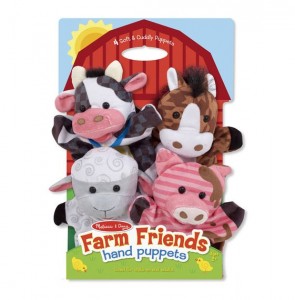
Echo Microphone: These microphones can be found at many different stores and are relatively inexpensive (usually just a few dollars!). Little ones can vocalize into these mics and hear a distinct echo. Parents can encourage lots of sound play and also song play!
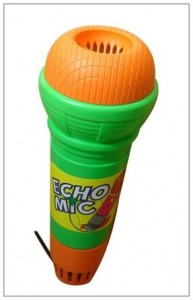
Pretend Play
Pretend Play is closely tied to the language development of your child. During pretend play your child is exploring, problem solving, socializing, and so much more. They are learning language phrases such as “my turn”, “help me”, and “all done”. They are building their vocabulary by learning the names of items (e.g. dog, bowl, car), action words (e.g. sleep, eat, walk), and concepts (e.g. in, out, on,). Check out these toys for pretend play:
Playskool Mr. Potato Head Tater Tub: This toy can be used to work on body parts, emotions, actions, and much more!
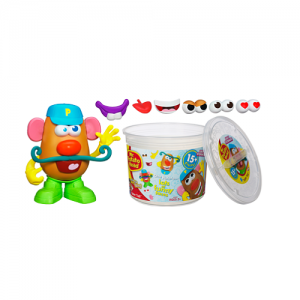
Learning Resources Pretend and Play Sliceable Fruits and Veggies: Cut these cute fruits in veggies in half. Model action words: cut, eat, mix, chop, stir. Pretend to feed the toy food to a favorite stuffed animal.
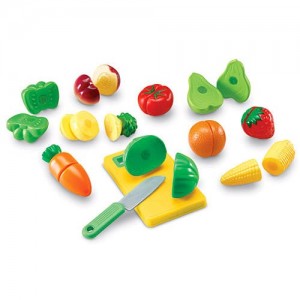
Wee Baby Stella Doll: Baby Stella is just one of the many baby doll toys on the market. Baby doll play can be a great way to work on relevant functional vocabulary such as “eat”, “hungry”, “night night”, and “bottle.”
